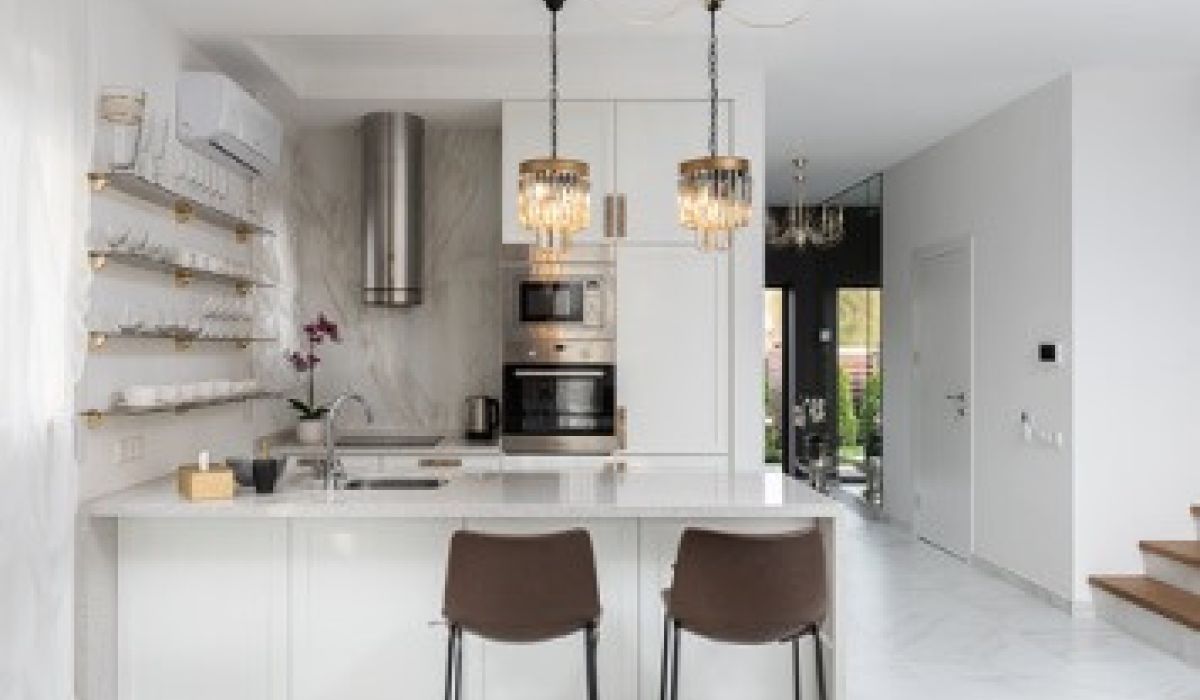
Designing Quality Spaces For The New Normal
With nowhere else to go, the home has become a critically important part of our lives. Home-life now includes work, schooling, leisure, exercise, and shopping all – though there is uncertainty about what things will look like following the post-pandemic shift, we have all seen that our homes aren’t set up for hosting all those extra activities.
Before the pandemic hit, the average person spent 4.5 waking hours at home, the new normal has caused this to triple. This has had a massive impact on all of us, 70% of respondents to a recent RIBA homeowner survey said that their home had directly impacted their mental health during the lockdowns.
At Detailed Planning, we have always known about the dramatic difference a well-planned home can make to everyday life. With so many people questioning how they can make changes to their home and improve their quality of life going forward, we have outlined a few key things to consider that will make your home well suited to the new normal.
Working from home

As offices closed across the country, workers swapped meeting rooms for zoom calls and had to figure out how to remain productive and balanced while working from home. Without any real physical separation between ‘workplace’ and home, many found themselves feeling tied down to work.
To counteract this, one of the main priorities is to create a dedicated area for work. Instead of trying to perch in a cramped kitchen, it is worthwhile considering whether an extension could offer the added space you need. For example, a two-storey extension could allow for a dedicated study on the upper floor – with an extended kitchen-dining space on the ground floor, perhaps with a seating nook for quick virtual catch-ups while you’re grabbing a morning coffee.
If your garden is big enough, adding in a garden office and relandscaping could create a morning commute that weaves through meadow grass and planters, instead of HGVs and choking exhaust fumes.
Having loud noises coming from other parts of your house, or even from neighbours can be extremely embarrassing during virtual meetings – soundproofing key areas can be a simple and effective way of reducing noise and helping you get some clear headspace.
Should you be unsure of creating a dedicated space for working from home, there is help out there, especially when it comes to working from home expenses and benefits, it may help you with the cost. Depending on the budget, you could even consider a home extension.
Designing for young children

Children are highly sensitive to their environment; it affects their learning and development. Having spent more time at home too, it’s important to think about how homes can be adapted to suit their needs as well.
A blended approach to learning will likely continue, which means children will need a good workspace of their own. Whether these learning spaces are within bedrooms or supervised within the main living areas, there are many ways to make a learning space engaging.
Workstations can be secreted away into utility spaces, but still offer a personalised space for your child. These foldable desks with built-in storage can be folded away discretely, blending in with the palette of your living space.
While learning is important, it is worth considering how space for play and recreation can be added into your child’s indoor experience. Extending can help to create an indoor room dedicated to indoor play, or where space is more limited – a reading nook can be a useful multi-functional addition. With lots of storage, these are highly practical but also create space for some active play or settling down with a good book.
Blending outdoors and indoors & Boosting Natural Light
We all have an instinctual response to nature, it can help us to feel more energized, but equally, having a view on to an outdoors scene can help us to keep calm in stressful situations. These feelings that we have are backed up by scientific research into the benefits of biophilic design.

Connecting indoor spaces with nature, boosting natural light, and adding in soft natural materials has been proven to have mental and physical health benefits. Perhaps more surprisingly, studies suggest that biophilic design can increase productivity and spark creativity. At Detailed Planning, we love introducing elements that help homeowners to reap the benefits of nature.
For rear extensions, we recommend using glazed openings with the slimmest frames possible – this makes sure the view remains unobstructed. If you are adding in a side-return extension, a strip of frameless glazing will introduce light throughout the day as the sun moves through the sky, bathing your living spaces in natural light and enhancing every surface with the play of shadows. Cleverly positioning openings can help ensure the home benefits from natural ventilation, improving the air quality by regularly removing stale air.
The ‘JOY’ Factor
No matter what changes you are considering making to rework your living environment so that it is the perfect base for the new normal, ensure you choose an architect who is willing to listen to your real needs and respond creatively. Your home should give you a little bit of delight every day, in short, your home needs the ‘JOY’ factor. If spaces are arranged to suit the way you live, materials are well-chosen and details are well balanced, then your home will continue to be an enjoyable space, no matter what happens.




